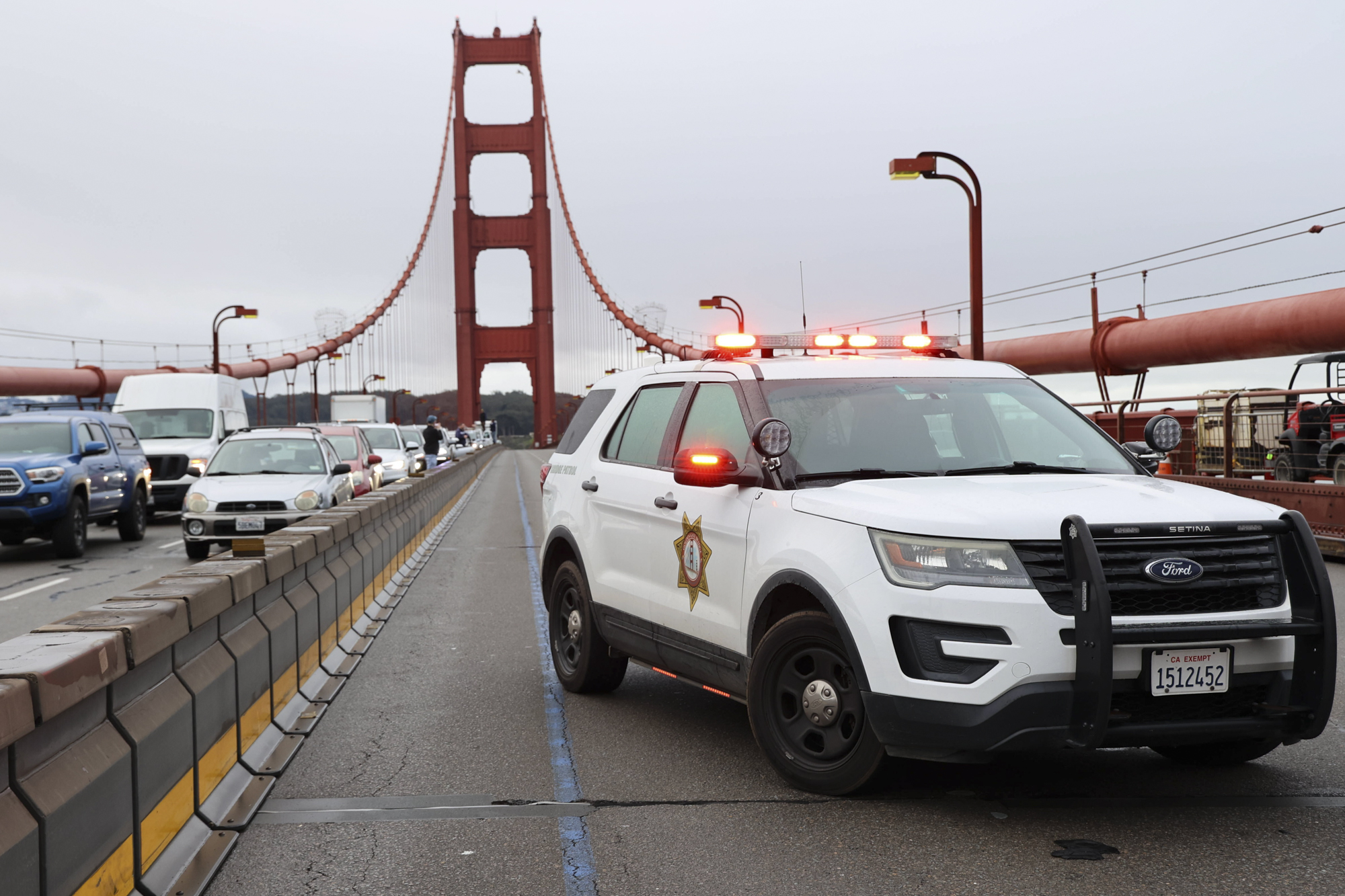A spokesperson for the bridge district confirmed that the claim had been withdrawn but declined to comment.
On Friday morning, lawyers representing the activists announced the withdrawal in San Francisco Superior Court and said they had reached agreements with six of the nine individuals who filed restitution claims, mostly for the wages lost due to being stuck on the bridge.
Judge Brian J. Stretch ultimately found that protesters would have to collectively pay just under $5,300 to the nine people for the losses they incurred. Divided among the 16 defendants who had agreed to a diversion program, which includes paying restitution, Stretch said the total would come out to $331.16 per person.

“Individually and as a group, it’s a win for people to get cases dismissed, but it’s not a win in terms of what’s going on in the world,” said Bobbie Stein, a lawyer representing one of the protesters. “This district attorney’s office has aggressively prosecuted these cases where people were exercising their First Amendment rights, their dissent and their outrage over the genocide that’s taking place in Gaza.”
In the days immediately following the protest, San Francisco District Attorney Brooke Jenkins posted to social media, encouraging people affected by the shutdown to seek potential compensation.
Activists and their supporters accused the district attorney of targeting the protesters for their support of Palestinians and using the restitution process against them. They also compared their case to Stanford pro-Palestinian protesters also facing restitution claims for barricading themselves inside the university president’s office in June last year.
“I think it is a calculated tactic to weaponize restitution, to chill people’s First Amendment rights, to chill people’s actions, to make them think, ‘No, I better not do that because I’m going to be liable for so much money. I can’t afford to exercise my rights,’” Stein said.

